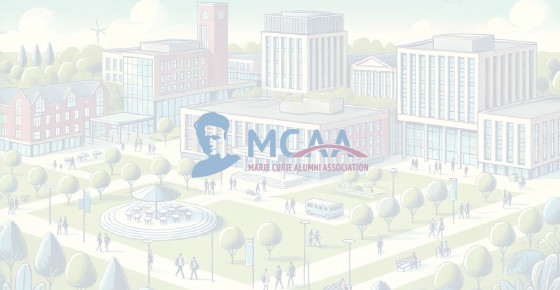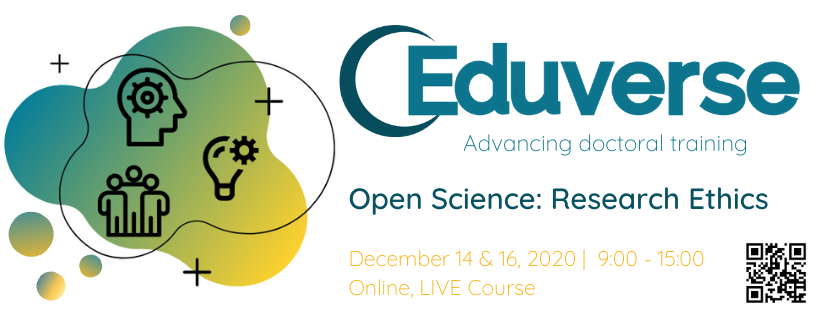
- General Info
Event Start Date
14 Nov 2020
Event End Date
16 Nov 2020

About the Event
Ethical dilemmas may arise in all stages of the research process, ranging from stating your research objective, through data collection and analysis, to reporting and publishing your findings. Based on real-life cases (including your own), (interactive) videos, ethical guidelines, and relevant articles, the objective of this workshop is not so much to teach you about the theory of ethics, but rather to provide you with a hands on approach to adequately resolving the ethical dilemmas that you are likely to come across during the course of your career as a scientist. Specifically, this workshop aims to help develop your skills in identifying the ethical issues that play into research, and will familiarize you with a structured sequence for arriving at ethically sound decisions. Finally, we will address the questions of whether and how to pick your battles and how to develop your moral courage on an ongoing basis.
Although the course will rely on supporting materials, such as ethics guidelines, and relevant articles from the extant literature, specific emphasis will be placed on the (anonymized) ethical issues that participants themselves have encountered. In doing so, the course seeks to cover a broad range of issues ranging from human subjects research (non-maleficence) to publication ethics and authorship credit. This course is aimed at active researchers (regardless of disciplinary background and career stage) who are committed to successfully navigating the ethical dilemmas they may encounter in their day to day activities.
Program
Day 1 – 14 December (Monday) – Online
09:00 – 12:00 Session 1
Introduction to the course; working definition of (research) ethics, introduction to framework for ethical decision making
12:00 – 13:00 Lunch break
13:00 – 15:00 Session 2
Using an interactive video format, during this second session we will practice optimizing our ethical decision making so as to avoid research misconduct
Day 2 – 15 December (Tuesday) – Virtual teamwork
On this day participants will resolve 4 ethics cases in the morning (in teams of 2) and research and prepare a 10 minute presentation in the afternoon which they reflect on their identity vis-a-vis research ethics and how to sustain research ethics after the course closes out.
Day 3 – 16 December (Wednesday) – Online
09:00 – 12:00 Session 3
Presentations and feedback on cases and presentations.
12:00 – 13:00 Lunch break
13:00 – 15:00 Session 4
Where to obtain resources pertaining to research ethics; when and how to involve others with your dilemma; and who best to involve; course evaluation and feedback.
The instructor
Dr. Stefan T. Mol is assistant professor in Organizational Behavior and Research Methods at the Amsterdam Business School of the University of Amsterdam, where he teaches research methods, performance management, cross cultural management, social entrepreneurship, and business research ethics. He received his Master’s degree in psychology at the University of Amsterdam in 2000, and his PhD in psychology in 2007, at the Institute of Psychology of the Erasmus University Rotterdam. His research collaborations have appeared in the Asian Journal of Social Psychology (2003), the European Journal of Work and Organizational Psychology (2013), Human Performance (2009), IEEE Transactions on Emerging Topics in Computing (2015), the International Journal of Intercultural Relations (2005), the International Journal of Knowledge and Learning (2012), the International Journal of Selection and Assessment (2009), the Journal of Cross-Cultural Psychology (2005; 2016), the Journal of Global Mobility (2013), the Journal of Learning Analytics (2014; 2016), the Journal of Vocational behavior (2018), Organizational Research Methods (2018; 2018), and several handbooks. In addition, Stefan was involved in the EU-Funded Leonardo da Vinci Ontohr (see www.ontohr.eu), Med-Assess (see www.med-assess.eu) and Ontotech (see www.ontotech.eu) projects. From 2013-2017 Stefan served on the Board of Management and Supervisory Board of the FP7 Marie Curie Initial Training Network (ITN) Eduworks (see http://www.eduworks-network.eu) a project aimed at the socio-economic and psychological dynamics of labour supply and demand matching processes at aggregated and disaggregated levels.